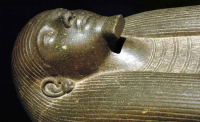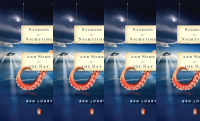Aidan Higgins does much over the course of Balcony of Europe, though one of his more interesting experiments deals with the validity of memory, particularly, the various markers or points of reference one uses to augment memory and how those can either bolster or confuse memory. Several passages in the text work back from said markers and have no explicit connection to the overarching narrative. To watch this process is often thrilling and more than once caused me to put the book down, flustered that Higgins beat me to it. It was like that. –Patrick McAllaster
Loved the meandering journey through the woods of the Southern U.S., through the nooks and crannies of fame and near-fame and lost fame, through the close harmonies of the Browns and their friendship with young Elvis. Confession-this is my first Rick Bass, certainly won’t be my last. –Carol Reid
I just finished up Lily Hoang’s The Evolutionary Revolution a few days ago and it was a perfect, perfect read as the year spins through and renews itself. It’s this incredibly gorgeous book about a world ours yet not ours at all, a people immersed in dream and myth but also a little bit of carnival barkerism and trickery. It’s an origin story where things go wrong, where a council approves evolutionary changes, where mutations happen all the time, where time is more fluid and the world is both sweeter and scarier than our own. And yet it’s not just word gymnastics, not just dazzling displays of linguistic virtuoso; there is a deeply woven story in the midst of all this thunder: the story of one exceptional family and of many kinds of love–of ways to bind and ways to sever ties and ways to endure and of what it means, in the midst of an evolutionary revolution, to be awake and alive in the world. –Amber Sparks
The third time I read Steve Healey’s 10 Mississippi, I began to dog-ear pages at the bottom since I’d creased so many page corners the book would hardly close. This is a fitting testament to Healey’s sophomore effort, which is a remarkably vivid, endlessly imaginative, and thoroughly engrossing collection. Equal parts wit and elegy, 10 Mississippi is my favorite book of 2010, and though I’ve yet to see it top any year-in-review lists, it certainly tops mine. –Adam Tavel
Grace Notes is old by reader standards: published in 1997. But I’m glad I picked up this book about a female composer struggling to overcome the post-partum depression that resulted from the birth of her daughter. As she emerges from her deep funk, she begins to come to terms with other darknesses: her father’s death and his alcoholic, violent life; her mother’s distance; the alcoholic charm and violence of her daughter’s father; her long absence from composing. Shot through with musical metaphors, this is a book about art and the creative process–one worth savoring. –Tracy Youngblom









